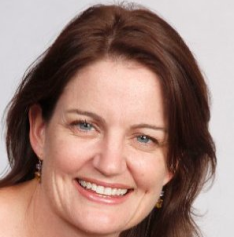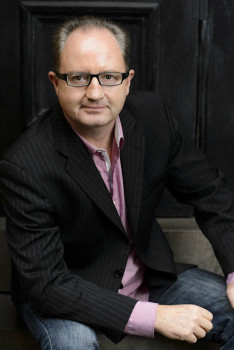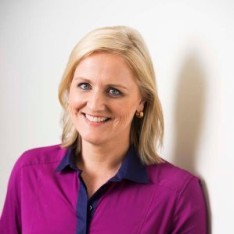Is the PR industry in need of a re-brand?
While the discipline and skills involved in public relations has evolved the name has not. Miranda Ward spoke to leading PR professionals on their take on the current state of the PR industry about whether the industry needs a new name for the new approach.
For Stuart Gregor, the founder and director of Liquid Ideas, the “discipline itself has changed and evolved” while the name – public relations – has not.
“We’ve been tossing around how we would refer to ourselves as an agency and we’re saying are we a creative influence agency?
“That itself comes up with a few problems because we realised that would make us the CIA,” Gregor said with a laugh. “We’re not sure if the CIA is better or worse than PR.”
According to Gregor, the phrase “public relations” has been “misappropriated and become even in itself a term that has become too broad”.
“It can mean a publicist, a social media manager, a content provider,” he said.
But for Melissa Cullen, co-founder and managing director of Res Publica, having a term that is so broad is a positive
“The diversity that exists with PR has always been quite great,” she said.
“If you think about it, it’s never just been about media relations, there’s always been other things within that so whether that’s corporate or government work or stakeholder engagement or experiential activity.
“It’s always been quite a broad term and what you’re finding now is we are continuing to evolve as an industry in terms of what we offer, we have to.”
One Green Bean founder and global executive creative director Kat Thomas is unapologetic, saying “the debate about whether public relations needs to be rebranded is a tired one.”
“It’s time to leave behind the inferiority complex,” she said.
You don’t see other agencies denounce the discipline they were once grounded in, they simply acknowledge an evolution is happening.
“Take Wieden + Kennedy – they believe it doesn’t matter where or how an idea is expressed, you still need to start with a good one.
“They’re not hamstrung by a label and PR professionals shouldn’t be either. Let’s move on.”
GE Australia and New Zealand VP of communications Emma Rugge Price says the term ‘public relations’ “doesn’t do justice to what they can do or could do”.
“There’s a big role for agencies, especially as budgets get tighter internally, to play a broader corporate, marketing role beyond just media relations, public relations and even government relations,” she said.
“Media relations should be done in-house and you want to have those relationships yourself and frankly, you really want to be able to develop strategies in-house, but you look to an agency to bring a different point of view because that’s the value that they bring.”
However, for Annalise Brown, managing director at M&C Saatchi’s PR offering Bang PR, public relations can still represent what the industry does.
“If you look at the true sense of what public relations as a terminology is, it still can represent what we do because it’s about relating to the public and that’s obvious textbook terminology,” she says.
“In terms of what people associate with traditional public relations agencies, that’s their problem to a certain extent. Any informed communications specialist or client knows that public relations agencies today are very different to those from yesterday.”
Brown has Gregor on side who says “If you’re a modern marketer and you think that’s what a PR agency does then you’re not a very good modern marketer” in reference to a potential view that PR agencies are only capable of media relations type tasks as opposed to building creative strategic campaigns.
That said, like all industries we have some outstanding, forward thinking brilliant operators and we have some old-fashioned, behind the times operators.
“We are working in a very different environment than we were two years ago,” he added.
However Icon International Communications managing director Chris Gray disagrees.
“Marketers have really struggled to understand what PR is and have characterised it as ‘you do the media relations stuff, you look after journalists?’,” he said.
“And yes we do, but that’s changed dramatically. Yes, we’ll still talk to journalists but we can do so much more.”
According to Gray, the industry does need “to reposition itself”.
“Our discipline tends to be a little apologetic and has always been behind the scenes. A lot of that comes from it’s almost like we’re the hero makers but we’re not the heroes,” he said.
“We tend to get in behind businesses and help them with their stakeholder engagement, whereas our advertising counterparts have been far more assertive and far more confident in positioning themselves as the leaders in conversations, whether that’s communications or marketing.
“That’s changing. It has been changing.
“There’s a golden opportunity for public relations professionals to step up and be more assertive in the way we approach brands and the way we approach business.”
However, Brown doesn’t believe it is necessary to rebrand the industry as a whole and instead suggests it is “a case of each of us as individual agencies” needing to be “really clear about the competencies of our individual agencies”.
“It’s not a one-stop shop anymore and you can’t cookie cut one agency to another,” she says.
“We all have very different specialisms and very and very different remits that our clients give us and therefore those become very different skills we offer and very different relationships we offer even from client to client.”
But for global chief executive officer at Havas Worldwide & Havas Creative Group, Andrew Benett “PR as a label has changed dramatically”.
“The way I would look at it is enlightened agencies purposefully blur everything today,” he says.
“Where is PR today? If you look at great PR agencies they excel in content creation, they have an understanding of media and not just earned media, in paid media and owned media.
Long gone are the days where PR agencies or a marketing agency just talks about paid, owned and earned and manages messages that way.
“So whether you’re talking about content, building communities, influencer strategies, all stuff that anywhere around the world, including Australia, are very much core and within the domain of a “PR” agency. Today I think that’s all blurred.”
Thomas is in agreement saying “clients want to work with forward thinking agencies that can deliver a strategy that will affect tangible, positive change to their business.”
“Enlightened ones know this thinking can come from one or a combination of agencies,” she added.
Does PR deserve a bigger slice of the marketing budget?
While creative ad agencies, social media agencies, digital agencies and even media agencies are all moving in on turf familiar to PR agencies Gregor is adamant the PR industry still needs to “earn the right” to a larger share of the marketing budget.
“We need to be a little bit patient,” he says.
“We have to probably earn the right, this whole idea of ‘it should be us, why don’t you just give it to us’, it’s not going to happen that way. We have to be better at convincing clients that it is us.”
Brown is in agreement quipping “not if they don’t work for it” when the same question is posed to her.
“Each agency that has a seat at that table has a role to play. All too often agencies sitting at the table are expecting a certain piece of the pie without demonstrating the value,” she says.
“That’s true for any agency, whether it be creative, digital, a one-stop shop. You have to demonstrate that value to get that level of budget.
But it is improving for PR agencies.
“In terms of the kinds of budgets we now have access to, they are much bigger than they were when I started in the industry,” Brown says.
“Certainly clients have become a lot more educated to the different agencies in their mix and what they can do for them.
“We’ve come a long way in educating our clients that we don’t just send out a press release so that certainly means they can see the value in what we do and setting the budgets accordingly.”
For Cullen PR agencies are starting to grab the portion of the budget they deserve.
“We are very much part of that agency village that bigger companies create and we are very much seen as an important part of that mix and it’s really dependent on the needs of that client as to where the money should be spent,” she says.
“Sometimes there should be a lot of investment into the PR side of things but sometimes you need to invest it in other ways, it really depends on what the actual problem is to be solved is and what the brief is.”
Benett, like Cullen, is focused on what the client’s needs are, explaining that within the Havas Village agency model the focus is always “trying to start with solving a client’s business problem is”.
“That’s why we design villages and that’s why we have taken great efforts to eliminate, reduce and restructure, so P&Ls don’t get in the way because at the end of the day what we believe most clients want is to have a thorough and engaging and solid business conversation around what they’re trying to achieve,” he says.
“We then come back with whatever that solution is and obviously in almost every case PR plays a role in that.”
- Miranda Ward is public relations and publishing editor for Mumbrella










 Linkedin
Linkedin
really interesting article, thanks.
As a journo who started in PR, after majoring in the field (Bach. Comms – PR) some years ago, I agree that PR does need to reposition itself, though changing the name ‘public relations’ is not the way to do it.
It’s ironic that PR itself doesn’t run a better campaign on itself!
I think the proliferation of agencies has definitely hurt the ‘brand’ of PR. So many of them are simply press agents…the real business of PR is about the ideal of two way symmetrical communication between an organisation and its audience (the ‘public’ in public relations – from the old Grunig model) and the only practitioners who come even close are the in-house professionals. I haven’t seen many (any) agencies doing this – it’s simply all about the column inches for your client.
Sure, agencies have a place – but the real torchbearers for PR are the in-house specialists. That’s where the real business of public relations is being practiced.
User ID not verified.
An interesting piece and I found myself nodding in agreement with Glen’s comment.
I think part of the problem is that public relations has been rebranding itself non-stop since it became a dirty word somewhere in the 1980s and we started calling it different names. Add to the mix that there are some 400+ definitions of PR and counting, it’s little wonder few people outside the industry understand what PRs really do.
Grunig’s definition sums it up nicely, so perhaps all we need to is to run a better campaign to communicate what PR is (and what it isn’t).
User ID not verified.